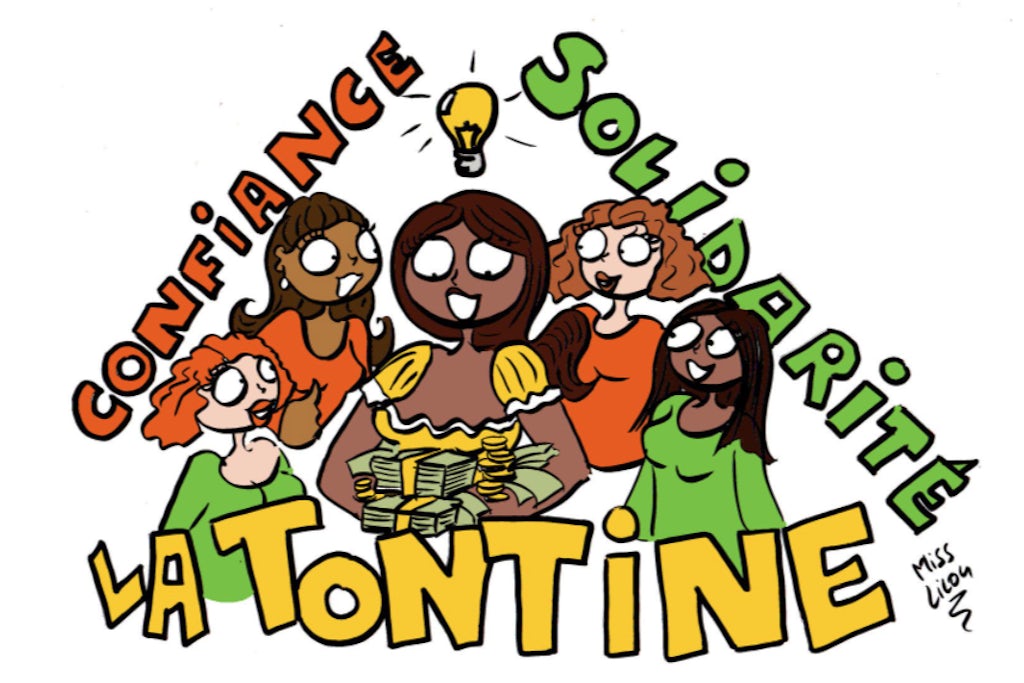A Fair New Idea?!
We lanceerden vier open oproepen voor projectvoorstellen die bijdragen aan een sterk, eerlijk en duurzaam kunstveld. Bekijk de resultaten en ontwikkelingen.

Tontine is a clear and simple community saving system without interest, in which 12 individuals pay a fixed amount every month into a collective pot, while one of them can take out the total amount for that month. Tontine is the basic mechanism under the Nobel Prize winning idea of ‘microcredit financing’ (developed by Muhammad Yunus).
Tontine is common practice mostly in the Global South, in contexts in which people have difficulties saving for bigger expenditures and/or don’t have access to banks. In Congo, it’s called likelemba. In Asia there’s the variant of the chit fund, that uses a monthly auction to determine which participant can get (part of) that month’s total capital.
Originally, tontine refers to an old European (pension) saving system, initiated by the Italian banker Lorenzo de Tonti in 1653 in Naples. In this system, every investor paid a sum into a fund and received an annual interest on it. If an investor died, the other investors got more interest, till all investors had died. So the longer you lived, the more you gained. Current tontine-systems don’t have this link to death any more.
In the likelemba-system 12 participants with small incomes (often women) pay a fixed amount (e.g. 20 dollar) every month to a collective pot. Every month one participant gets the whole pot (240 dollar), to do a bigger expenditure (a wedding, an investment…). So by the end of the year, every participant got the one time opportunity to use the collective monthly payments.
A more advanced form of Tontine is ROSCA (Rotating Savings And Credit Association): a number of individuals agrees to form a collective for a defined period (6 months, 1 year…) in order to save and borrow together, as a form of combined peer-to-peer banking and peer-to-peer lending. Different to likelemba, there’s an accumulation of the common capital by gathering more money together than individually: every individual gets more than s/he invested initially.
Participants often have a close and informal relation to each other: they are relatives, live in the same village or do similar work. These social connections are important, because the whole system is built on trust and solidarity. Money serves as a means to strengthen the community.
See Institut Afrique Monde.
See Wikipedia.
We lanceerden vier open oproepen voor projectvoorstellen die bijdragen aan een sterk, eerlijk en duurzaam kunstveld. Bekijk de resultaten en ontwikkelingen.
Hoe kunnen we toewerken naar een meer inclusieve, duurzame en solidaire kunstwereld?! Tijdens het A Fair New World?! traject (2020-2022) verzamelden we ideeën, praktijken en instrumenten die mogelijke oplossingen bieden.